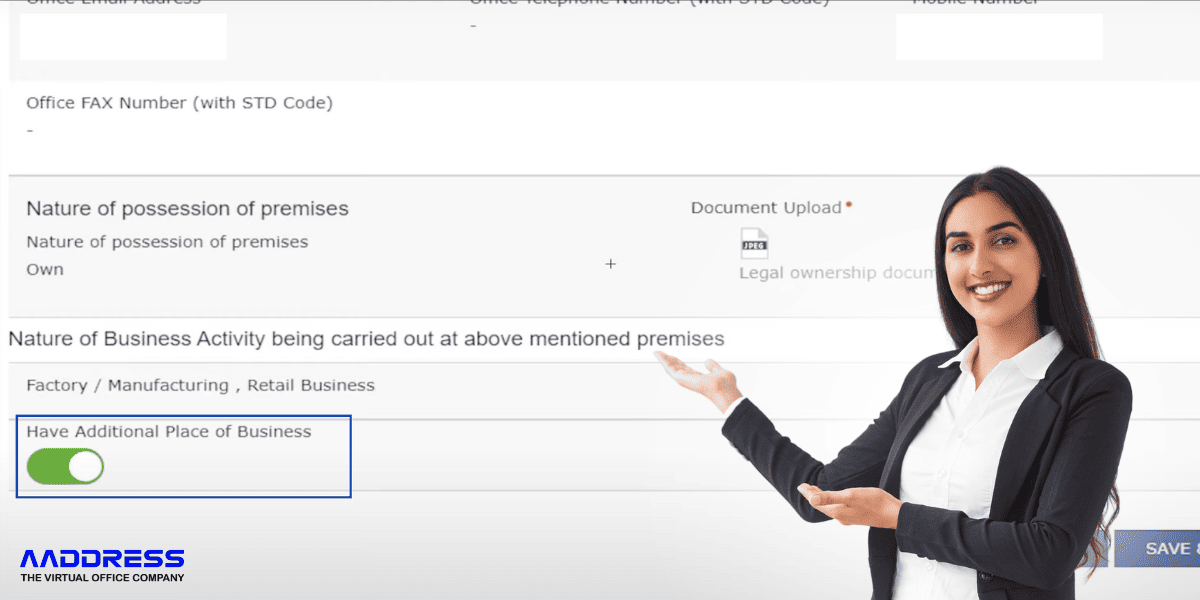Don’t just get a virtual office—let us help you build your business with our expert resources.Learn More
One Person Company (OPC): All You Need to Know

Highlights:
- One Person Company (OPC) is a unique concept under Indian law that allows a company to be owned and managed by a single individual.
- Approximately 34,446 OPCs have been incorporated in India, Out of these, at least 7,600 were incorporated in the past year.
- The number of OPCs in India has been increasing, with a significant rise of around 20% since 2014.
- As of 2024, statistics indicate that about 34,446 OPCs have been incorporated in India, with at least 7,600 incorporated in the past year.
Introduction
In today's growing business era, the One Person Company (OPC) has gained significant traction among solo entrepreneurs aiming to launch their ventures.
Offering the advantageous blend of limited liability and the straightforwardness of a sole proprietorship, OPCs provide an enticing avenue for individuals to realize their entrepreneurial aspirations without the complexities of engaging partners.
In this detailed guide, we'll explore the nuances of initiating a One Person Company, encompassing its essence, qualifications for eligibility, the process of registration, and the essential compliance measures.
Understanding One Person Company (OPC)
A One Person Company, as the name suggests, is a business entity that can be formed and operated by a single individual. It provides the benefits of limited liability, meaning the personal assets of the owner are protected in case of any liability incurred by the business. OPCs are governed by the Companies Act, 2013, in India, and similar regulations may apply in other jurisdictions.
Check this video to understand what is a One-Person CompanySource Credit: https://www.youtube.com/@LabourLawAdvisor
Eligibility Criteria for OPC Registration
To register as a One Person Company, certain eligibility criteria must be met:
Sole Proprietorship: The individual must be a resident of the country where the OPC is being registered and must act as both the director and shareholder of the company.
Minimum Capital Requirement: There is no minimum capital requirement for forming an OPC, making it accessible to individuals with limited financial resources.
Nominee Director: The owner of the OPC must appoint a nominee who will take over the management of the company in case of the owner's death or incapacity.
Restrictions: OPCs cannot be involved in certain types of business activities such as non-banking financial investment activities, carrying out charitable activities, or operating as a Non-Banking Financial Institution (NBFC).
Registration Process for OPC
The registration process for an OPC involves several steps:
Obtain Digital Signature Certificate (DSC): The owner must obtain a DSC, which is required for filing the incorporation documents electronically.
Director Identification Number (DIN): The owner needs to apply for a DIN, which is a unique identification number assigned to directors of companies.
Name Reservation: Choose a unique name for the company and apply for its reservation through the Ministry of Corporate Affairs (MCA).
Incorporation Documents: Prepare the necessary documents, including Memorandum of Association (MOA) and Articles of Association (AOA), and file them with the Registrar of Companies (ROC).
Certificate of Incorporation: Once the documents are verified and approved, the ROC issues a Certificate of Incorporation, officially establishing the OPC.
PAN and TAN Application: Apply for Permanent Account Number (PAN) and Tax Deduction and Collection Account Number (TAN) for the OPC.
Source Credit: https://www.youtube.com/@myonlineca
Advantages of OPC
Limited Liability: The owner's liability is limited to the extent of their investment in the company, protecting personal assets from business liabilities.
Separate Legal Entity: An OPC enjoys a distinct legal identity separate from its owner, which enhances credibility and facilitates ease of doing business.
Perpetual Succession: The death or incapacitation of the owner does not affect the existence of the OPC, thanks to the provision of a nominee director.
Tax Benefits: OPCs are eligible for various tax deductions and incentives available to small businesses, reducing the tax burden on the owner.
Ease of Compliance: Compared to other types of companies, OPCs have simpler compliance requirements, making it easier for solo entrepreneurs to manage.
Source Credit: https://www.youtube.com/@sonamgedaandcompany4378
Compliance Requirements for OPC
While OPCs enjoy certain flexibility in terms of compliance, there are still certain obligations that must be fulfilled:
Annual Filings: OPCs are required to file annual financial statements and annual returns with the ROC.
Appointment of Auditor: OPCs must appoint an auditor within 30 days of incorporation and continue to have their accounts audited annually.
Maintenance of Books of Accounts: Proper books of accounts must be maintained by the OPC, reflecting its financial transactions.
Board Meetings: Although OPCs have only one director, they are still required to hold at least one board meeting in each half of the calendar year.
Tax Compliance: Compliance with tax laws, including filing income tax returns and payment of taxes, is essential for OPCs.
Successful One Person Company (OPC) in India
One notable example of a successful One Person Company (OPC) in India is that of Flipkart. Founded by Sachin Bansal and Binny Bansal in 2007, Flipkart started as a small e-commerce platform operating out of a single room.
Over time, it grew into one of India's largest online marketplaces, offering a wide range of products across various categories.
During its initial years, Flipkart operated as a One Person Company with Sachin Bansal as the sole proprietor.
The OPC structure allowed Bansal to maintain control over the company's operations while enjoying the benefits of limited liability. This enabled him to take calculated risks and focus on scaling the business without the need for external partners.
As Flipkart continued to expand its operations and attract investments, it eventually transitioned into a private limited company.
However, its humble beginnings as a One Person Company demonstrate how the OPC structure can provide a conducive environment for entrepreneurial growth, allowing individuals to transform their ideas into successful enterprises.
Conclusion
Establishing a One Person Company can be an attractive option for solo entrepreneurs seeking limited liability and a separate legal entity for their business endeavors.
By understanding the eligibility criteria, registration process, advantages, and compliance requirements outlined in this guide, aspiring business owners can navigate the process of setting up an OPC with confidence.
With the right approach and adherence to regulatory norms, OPCs offer a conducive environment for individuals to unleash their entrepreneurial potential and contribute to economic growth.
Subscribe To Our Newsletter
Conquer your day with daily search marketing news.
Most popular Blogs
Top 5 Locations in Delhi to Set Up Your Virtual Office
When you start a business in Delhi, there's always that one uncle or friend who...
Read Full ArticleReading Time: 5 min.How to Start Water Bottle Business in India: A Practical Guide
Starting a water bottle business in India can be a smart and rewarding move. ...
Read Full ArticleReading Time: 4 min.How to Add Additional Place of Business in GST Online (2025 Guide)
Adding an additional place of business in GST is mandatory for each business if they...
Read Full ArticleReading Time: .Low-Cost Business Ideas with High Profit
Introduction Starting your own business is becoming a popular choice for many people today....
Read Full ArticleReading Time: .



